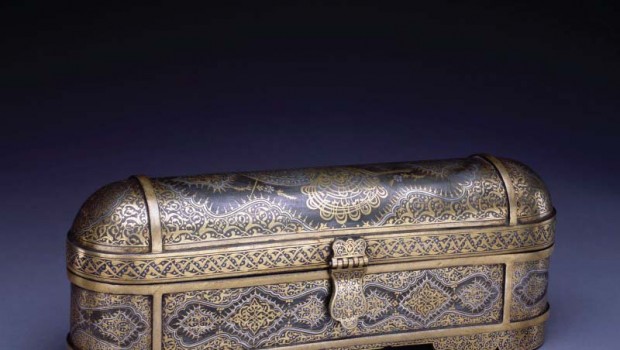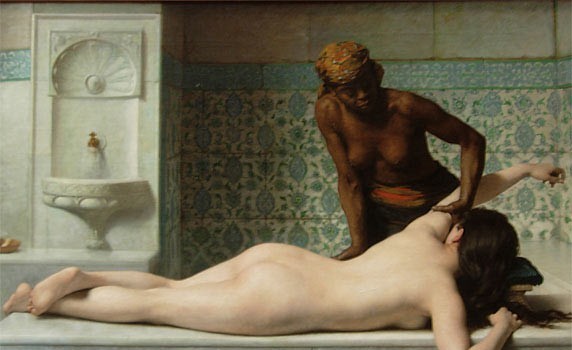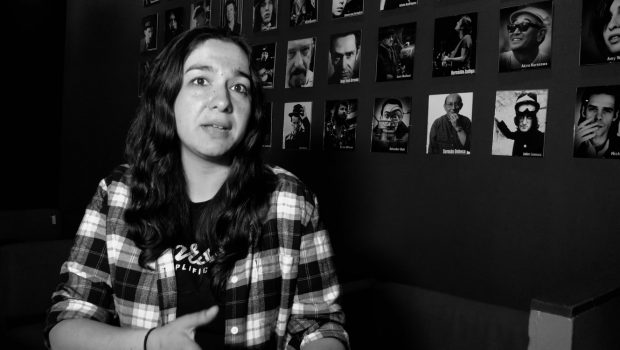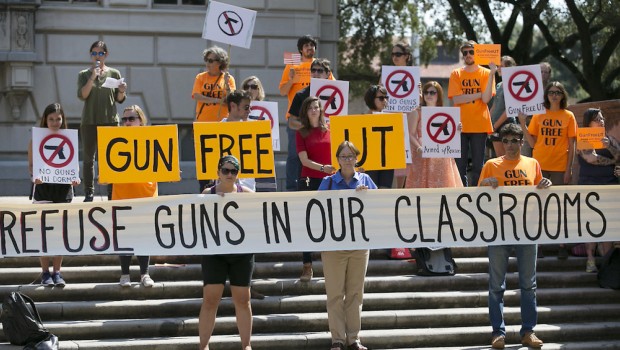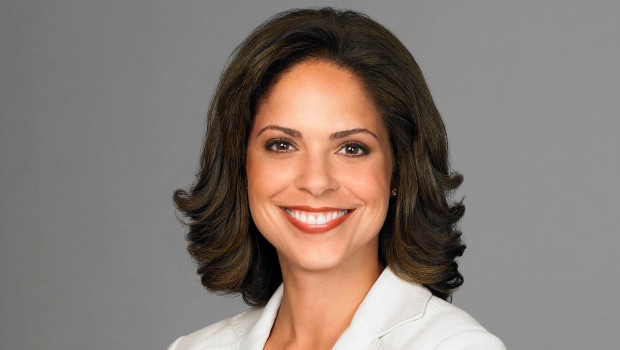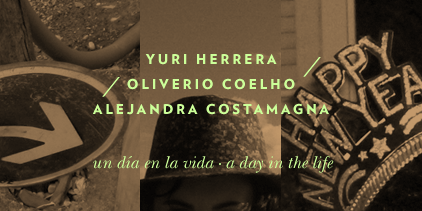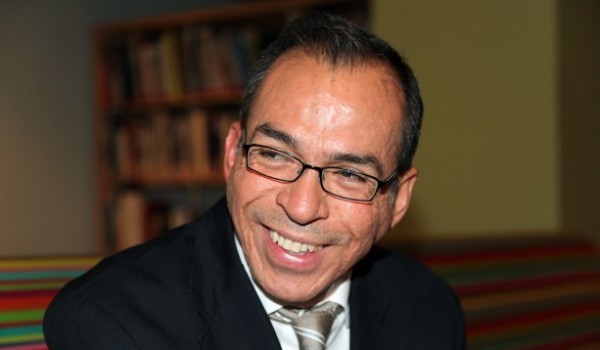Irshad Manji: Between Dogma and Faith
Entre dogma y fe
Irshad Manji
ISHRAD MANJI WAS BORN IN DURING UGANDA´S DICTATORSHIP Idi Amin. However, when she was 4, she and her family fled to Vancouver, where Irshad grew up in a much opened environment.
Manji is the best-selling author of The Trouble with Islam Today, 2005, which has been translated to more than 25 languages. Currently, Irshad is a Senior Fellow with the European Foundation for Democracy. She writes columns that are distributed worldwide by The New York Times Syndicate.
* * *
Rose Mary Salum: Is The Trouble With Islam Today, along with most religions, that people take sacred books and teachings literally rather than metaphorically?
Irshad Manji: Religions run into trouble when their adherents fail to distinguish between faith and dogma. Faith is secure enough to handle questions. Faith never needs to be threatened by questions. Dogma, on the other hand, is always threatened by questions because dogma, by definition, is rigid. It’s brittle. It snaps under the spotlight of inquiry–and therefore deserves to be threatened by questions.
The problem of dogma afflicts every religion. But in the 21st century, it does not afflict every religion equally. Of course, an uncritical approach to faith exists in Christianity, Judaism, Hinduism, even Buddhism. However, only in Islam today is dogmatism mainstream worldwide.
Let me explain what I mean by that sweeping statement. Most Muslims, even in the West, are routinely raised to believe that because the Quran was revealed after the Torah and the Bible, it is the final and therefore perfect manifesto of God’s will. As such, the Quran is not given to the ambiguities, inconsistencies and outright contradictions of those other so-called “sacred” texts. Even moderate Muslims believe that the Quran is not like any other holy book. It is God 3.0 and none shall come after it.
Moderate Christians, moderate Jews, moderate Hindus and moderate Buddhists do not have such an uncritical relationship to their scriptures. That’s what allows them to be moderate. But Muslims do. And this uncritical relationship to our scripture amounts to a supremacy complex about it.
That supremacy complex is dangerous for at least two reasons. First, it disproportionately empowers the violent fringe in Islam. How? In the second way that this supremacy complex is dangerous: it inhibits the “reasonable center”—moderates—from asking hard questions about what happens when faith becomes dogma. The violent jihadis are so adroit at quoting from the Quran to justify their violence, and because the rest of us have been taught we cannot ask questions of the Quran, we are left with the feeling that challenging the Quran-quoting jihadis is to challenge the Quran itself. And that, we are told, is off-limits. Welcome to the big lie that dogmatism promotes.
The fact is that even in Islam, it is permissible to ask questions of the Quran. Islam once exuded a glorious tradition of critical thinking, independent reasoning, debate and dissent known as “ijtihad.” It generated 135 schools of interpretation. And it taught Muslims that we can be thoughtful and faithful at the same time. Muslims have turned their backs on this tradition. If we re-discover ijtihad, it will not be by chance. It will be by choice.
R.M.S.: As you say, the most crucial jihad is self criticism or the struggle with one’s self (and this concept exists in many other religions), why keep avoiding it? Is it power, is it survival, what is it?
I.M.: To engage in a struggle with the self is to contest one’s pride, ego, esteem—and ultimately, identity. These days, identity is confused with integrity. If we identify as Muslims than that is all we are supposed to be, the higher-ups warn us. We belong to a particular tribe with a particular set of values and to contest those values, even if we did not choose them for ourselves, is to betray the people who give you your identity and thus your integrity. A convenient, self-contained argument, is it not?
This argument, like any dogma, feeds off fear— the fear of being marginalized or physically threatened within your community; the fear of offending, instilled by orthodox multiculturalism; the fear of losing a sense of where you belong, which is especially daunting in a world of shifting borders.
So what takes the place of self-criticism? Self-censorship. Too many of us clam up and conform to the injustices in our own tribes, and the bullies we fear need not lift a finger—except to point it at the oppressors outside the tribe. For Muslims, those outside oppressors are America, Israel and MTV. The rare Muslims who point a finger inside the tribe are not only deemed traitors, but are declared “inauthentic,” “opportunistic,” or worse. In just one breath, their identity and integrity are smeared. Is it any wonder that self-criticism is avoided?
Yet the greatest social reformers have always challenged the oppressors within their tribes, even as they have stood up to imperialists from without. Gandhi, for example, took on the ancient caste system of India while defying British colonizers. He pointed out that replacing a white oligarchy with a brown oligarchy still amounts to an oligarchy. He made “swaraj”—or revolution within the self—as much of a cornerstone as his more famous philosophy of “satyagraha”—or non-violent resistance.
Many of us know about the latter. Far fewer of us know about the former. Which only goes to show that even well-educated people are not immune to the lazy temptation of waging the outer struggle and ignoring the inner one. Humanity pays a steep price for this imbalance. The Quran itself warns that “God does not change the condition of a people until they change what is in themselves” (13:11).
R.M.S.: If all you propose is for Muslims to truly follow The Holy Book, why do you receive so much animosity in return? (you always quote a beautiful passage of the Quran: “Believers: Conduct yourselves with justice and bear true witness, even if it be against yourselves, your parents, or your kin.” (4:135)
I.M.: The animosity comes from those who insist that my agenda is to destroy pure Islamic society from within. But if abusing basic human rights is the indictor of a “pure” Islamic society, then nothing I could do would be worse than what Muslims are already doing to each other.
In a desperate attempt to avoid addressing injustices within our tribe, many of my critics to make me, Irshad Manji, the issue. “She is a feminist,” they sneer. Is it because I am a feminist that three honor killings a day are happening in Pakistan alone, usually with the word “Allah” dripping from the lips of the murderers? “She is a lesbian,” they huff. Is because I am a lesbian that in Mali and Mauritania, little boys are hustled into slavery by Muslims? “She lives in the West,” they protest. Is it because I live in Canada that Christian humanitarian workers are shot point-blank in places like Saudi Arabia? In short, if I exited the scene, would these and other displays of religious violence magically disappear? Do I really have all that power?
The first dissidents in Islam emerged less than a hundred years after the religion was established. These dissidents were male, Arab and heterosexual. Yet they were still accused of being in the pay of the Jews! My point is, when people do not want to confront the facts, they will reach for any weapon of mass distraction. I am not fooled by these tactics and neither are the many Muslims writing to me in support.
IRSHAD MANJI NACIÓ DURANTE LA DICTADURÍA DE IDI AMIN en Uganda. Cuando tenía 4 años su familia emigró a Vancouver, en donde creció en un ambiente más abierto. Manji es autora del libro El problema con el Islam (The Trouble With Islam Today, 2005), traducido a más de 25 idiomas. En la actualidad, Irshad tiene el título de Senior Fellow dentro de la Fundación para la democracia europea. Es columnista en The New York Times, diario que difunde sus escritos por todo el orbe.
* * *
Rose Mary Salum: ¿El problema con el Islam en la actualidad, lo mismo que con la mayoría de las religiones, es que la gente toma los libros sagrados y las enseñanzas religiosas literalmente en lugar de metafóricamente?
Irshad Manji: El problema con las religiones se origina cuando sus seguidores no distinguen entre fe y dogma. La fe es lo suficientemente segura para lidiar con cualquier incertidumbre. La fe no se necesita ver amenazada por preguntas. El dogma por otro lado, siempre se ve amenazado por los cuestionamientos porque el dogma, por definición, es rígido. Es quebradizo. Aparece bajo la luz de la indagación, por consiguiente merece ser amenazado por cuestionamientos.
El problema del dogma aflige a cada religión. Pero en el siglo XXI, no afecta de manera similar a cada religión. Desde luego, existe una aproximación acrítica en el cristianismo, judaísmo, hinduismo incluso en el budismo. Sin embargo, sólo en el Islam de hoy, a nivel mundial, la visión dogmática es la corriente principal.
Permíteme explicar a lo que me refiero con esta avasalladora afirmación. La mayoría de los musulmanes, incluso en el Occidente, son rutinariamente educados desde su infancia para creer que, como el Corán fue revelado después de la Torá y la Biblia, es la versión final, y por consiguiente, el manifiesto perfecto de la voluntad de Dios. Como tal, el Corán no se presta a las ambigüedades, inconsistencias y absolutas contradicciones de aquellos llamados textos “sagrados”. Incluso los musulmanes moderados creen que el Corán no es como ninguno de los otros libros sagrados. Es Dios 3.0 y no aparecerá una nueva “versiòn”.
Cristianos moderados, judíos moderados, hindús moderados y budistas moderados no tienen una relación tan poco crítica con sus respectivas escrituras.Eso es lo que les permite ser moderados. Pero los musulmanes sí la tienen. Y esta relación acrítica con nuestras escrituras deviene en un complejo de superioridad.
Este complejo de superioridad es peligroso por al menos dos razones: primero, otorga poder de manera desproporcionada a la fracción extrema y violenta del Islam. ¿Cómo? —y ésta es, al mismo tiempo, la segunda razón por la que esta visión acrítica es peligrosa—: inhibe al “centro razonable”, es decir, modera a este centro de cuestionar acerca de lo que pasa cuando la fe se convierte en dogma. Los jihadis son muy hábiles para citar al Corán y justificar su violencia, y como el resto de nosotros hemos sido enseñados a no hacer preguntas sobre el Corán, nos quedamos con el sentimiento de que si cuestionamos al Corán, citando a los jihadis, equivale a desafiar al Corán en sí mismo. Y eso, se nos dice, está fuera de lugar. Bienvenidos a la gran mentira que promueve el dogmatismo.
El hecho es que aun dentro del Corán es permisible hacer preguntas sobre el Corán. Hace un tiempo el Islam creó una tradición gloriosa de pensamiento crítico, razonamiento independiente, debate y disentimiento conocido como “ijtihad”. Generó 135 escuelas de interpretación. Y enseñó a los musulmanes que podemos ser pensadores críticos y a la vez creyentes. Los musulmanes han dado la espalda a esta tradición. Si redescubrimos la ijtihad, no será por azar. Será por decisión propia.
R.M.S.: Si como dices la jihad más importante es la autocrítica o la batalla interna con uno mismo (este concepto existe en otras religiones), ¿por qué continuar evitándola? ¿Será una cuestión de poder? ¿Sobrevivencia? ¿Qué puede ser?
I.M.: Comprometerse en una batalla consigo mismo es pelear con el orgullo propio, el ego, la estima y, finalmente, la identidad. En estos días la identidad se confunde con la integridad. Si nos identificamos como musulmanes, que eso es todo lo que se supone que debemos ser, nuestros superiores, nos amenazan. Pertenecemos a cierta tribu con un particular juego de valores y desafiar esos valores, aun si no los escogimos nosotros mismos, es traicionar a la gente que te dio tu identidad, en consecuencia, tu integridad. Es un argumento autónomo muy oportuno, ¿no es así?
Este argumento, como cualquier dogma, alimenta el miedo —el miedo a quedar marginado o amenazado físicamente dentro de la propia comunidad; el miedo a ofender, instigado por un multiculturalismo ortodoxo; el miedo a perder el sentido de pertenencia, el cual es especialmente intimidante en un mundo en donde las fronteras se modifican.
Entonces ¿qué sustituye a la autocrítica? La autocensura. Muchos de nosotros nos encogemos y nos conformamos con las injusticias de nuestras propias tribus y los opresores a los que tememos, no necesitan mover un dedo —excepto para apuntar a los opresores fuera de la tribu. Para los musulmanes, esos opresores externos son Estados Unidos, Israel y MTV. Los pocos musulmanes que apuntan su dedo dentro de la tribu no sólo son considerados traidores, sino poco “auténticos”, “oportunistas” o algo peor aún. En un suspiro su identidad e integridad es empañada. ¿Es de asombrarse entonces que se evite la autocrítica?
Aún así, los más grandes reformadores sociales han confrontado a los opresores dentro de sus tribus, incluso mientras han burlado al imperialismo desde fuera. Gandhi, por ejemplo, enfrentó al viejo sistema de castas de la India mientras desafiaba a los colonizadores ingleses. Señaló que reemplazar a la oligarquía blanca por la oligarquía de color, seguía siendo oligarquía. Él hizo de la “swaraj”, o revolución interna del ser, el toque de piedra de su pensamiento así como su más famosa filosofía de la “satyagraha” o la resistencia no violenta.
Muchos de nosotros conocemos esta última propuesta. Muy pocos la anterior. Lo que sólo muestra que aún la gente con más preparación no es inmune a la tentación de sacudirse la lucha externa e ignorar la lucha interna. La humanidad paga un precio muy alto por esta falta de equilibrio. El mismo Corán advierte que “Dios no cambia la condición de la gente hasta que ellos no cambien lo que llevan dentro” (13:11).
R.M.S.: Si tu propósito es que los musulmanes sigan verdaderamente el Libro Santo, ¿por qué recibes a cambio tanta animosidad? (Tú siempre citas un pasaje hermoso del Corán: “Creyentes: condúzcanse con justicia y sean testigos verdaderos, aun si es contra ustedes, sus padres o su descendencia”. (4:135)
I.M.: La animadversión viene de aquellos que insisten en que mi propuesta es la destrucción, desde dentro, de la sociedad islámica pura. Pero si abusar de los más básicos derechos humanos es el indicador de una sociedad islámica “pura”, entonces nada de lo que haga puede ser peor que lo que los musulmanes se están haciendo a sí mismos.
Con el desesperado afán de no apuntalar las injusticias llevadas a cabo dentro de nuestra tribu, muchos de mis críticos hacen de mí, Irshad Manji, el problema. “Es feminista”, se burlan. ¿Será porque soy feminista que tres muertes por honor se llevan a cabo diariamente tan solo en Pakistán, y generalmente lo hacen con la palabra Alá chorreando de los labios de los asesinos? “Ella es lesbiana”, dicen petulantes. ¿Será porque soy lesbiana que en Mali y Mauritania, los musulmanes esclavizan a niños pequeños? “Ella vive en Occidente”, protestan. ¿Será porque vivo en Canadá que trabajadores cristianos humanitarios son asesinados en lugares como Saudi Arabia? En pocas palabras, ¿si yo desapareciera de la escena, estas exhibiciones de violencia religiosa desaparecerían mágicamente? ¿En verdad tengo ese poder?
Los primeros disidentes en el Islam surgieron hace menos de cien años después de que la religión fue establecida. Estos disidentes eran hombres, árabes y heterosexuales. Aun así ¡fueron acusados de ser sobornados por los judíos! Mi punto es que, cuando la gente no quiere enfrentar los hechos buscará cualquier arma de distracción masiva. No me engañan estas tácticas y tampoco a los musulmanes que escriben para darme apoyo.


